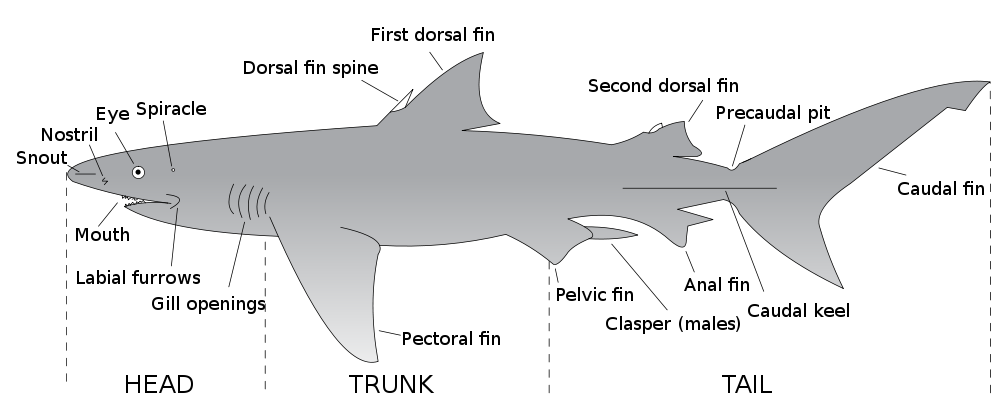You probably know several people who are trustworthy. These are the people with whom you share your deepest thoughts and the ones you depend on in difficult situations.

Trustworthy sources are credible sources—the ones you can depend on to find solid, truthful answers to your research questions. But how do you know whether the information you find is credible? The questions explained on the tabs below cover the best strategies for evaluating the credibility of a source.

When it comes to science, you know by now that just about everything is in a constant state of change. This means that in your search for information, you should find the most recent information available. Look for a copyright date or date of publication for print books and articles. For online sources, look at the dates of articles (usually posted near the title), any dates within the article, and any information about when that particular page of the website was last updated.
Read the excerpt from the article below and decide whether it should be used to answer a research question about recent shark attacks.
One stormy winter's afternoon, the sea running excessively high, and a tremendous surf over the bar, a ship was seen laboring into the roadstead of the small village. . . .
The weather was so bad that there seemed no chance of her outliving the gale, and not a sailor on the shore would lend a hand to help, when Captain Symonds proposed to man a boat. . . . Captain Symonds then called upon the Maories to join him, and they immediately followed him into a risk of life which the Englishmen refused to encounter, and for the sake of sufferers not of their own race or country.
The boat pushed off; the wind was on the shore, the surf running in violently, and a cross-sea made it more dangerous; the bay, too, was known to be full of sharks. Still, however, the little boat held on till within a few cables' lengths of the distressed vessel, which was watching them anxiously, when the tremendous heave of a wave struck her side and she was capsized. Captain Symonds was seen swimming undauntedly toward the shore, holding on by an oar, but he was swallowed up by the sharks before he had made any way. . . .
“The Shovel-Nosed Shark” by Lady Verney
from Popular Science Monthly, Volume 4, November 1873
Question
Is this a credible source for a research topic related to recent shark attacks? Why or why not?

Factual information can be verified by other sources. Reference materials such as encyclopedias, dictionaries, and directories—whether online or in print—are considered reliable because they generally undergo rigorous review processes. Wikipedia, though it sounds and looks like an online encyclopedia, is a special case. Its articles can be written and edited by anyone; therefore, they are not considered credible sources for a research project. This doesn’t mean Wikipedia isn’t useful, though. You can use this site to learn more about a topic before searching in other, more reliable publications.
Magazines that publish popular articles and gossip, such as People and Better Homes and Gardens, are not as reliable as newsmagazines and science magazines, such as Newsweek and American Scientist. Research study reports and scientific articles that are published in scientific journals are also considered credible.
Question
Which of these is considered the most credible: an article in Popular Science or an article from Wikipedia?

Look closely at who is publishing the information. Is it a well-known organization with a reputation for delivering factual material? Does the author have a position or job title that suggests he or she has studied the topic for a long time? Ideally, you are looking for scientists, medical doctors, or professional researchers—people who are experts in the field of science.
Some scientific articles, such as those found in science magazines published for the general public, are written by journalists who are not experts on the topics of their articles. To consider these articles credible, you should make sure that they rely on the work and opinions of experts. The article should include direct quotes or summaries that are attributed to experts in that particular field of science.
Does the passage below seem to come from an expert?
Now, for something about sharks. In the charming tropic still known as Aitutaki, in the Cook Islands, sharks are caught by their tails. Major Large, the Government Resident, has often seen this very interesting exploit, and as he speaks from his own observations, and not merely from what has been told him, and is, moreover, a most reliable man, we may accept as correct what he has narrated.
from Forty Years on the Pacific/Strange but True Fish Stories by Frank Coffee
Question
How can you tell that this story is probably not written by an expert?

When you find a scientific text that might answer your research question, consider the style of writing. Is it formal and academic—is it written by scholars, in other words? Or does it sound more like a casual conversation, most likely written by someone who is not an expert? Look for scientific terms and technical definitions. These often indicate that the text is written by professionals who know what they’re talking about.
Compare and contrast the writing styles of the two passages below.
Sharks are numerous round about Tonga, and are caught in considerable numbers by hooks, or more commonly still by a simple bait and a running noose. At all great feasts in Tonga, the presence of as many sharks as possible is considered to be an indispensable requisite. They are always cooked entire, whatever may be their size, and are enclosed in a long basket made from the cocoanut leaf.
from Forty Years on the Pacific/Strange but True Fish Stories by Frank Coffee
Shark attacks are a global phenomenon that attracts widespread attention and publicity, often with negative outcomes for shark populations. Despite the widespread perceptions of shark attacks, trends in human water activities and shark populations are both dynamic, resulting in variable rates of shark attacks over space and time. Understanding variable trends in shark attacks may contribute to a better understanding of risk, and a more tempered response in the wake of an attack.
“Trends in Global Shark Attacks” by Stephen R. Midway, Tyler Wagner, and George H. Burgess
Question
Which of these has a professional writing style?
The last question you want to think about is whether the source is relevant. In other words, is it closely related to your topic? Does the source provide new and/or useful information that helps you answer your research question?
Study the diagram below, keeping this research question in mind: Why do sharks attack humans, and how frequently do these attacks occur today?

Question
Does this diagram relate to the question about why sharks attack and how frequently those attacks occur?
Question
Are outdated documents ever useful for completing a scientific research project?
